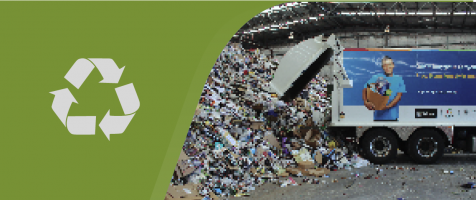The circular economy involves all areas of the economy designing out waste and pollution, and continually recovering and reusing materials from products after they have been consumed.
In 2019-20, WA generated 2,168 kilograms of waste per person. WA lags behind South Australia (85%), Australian Capital Territory (79%), New South Wales (68%) and Victoria (68%) in its rate of resource recovery (62%).
Australia has been exporting significant volumes of its waste for processing, however exporting of waste plastic, paper, glass and tyres has been banned to reduce waste and stimulate a domestic recycling industry.
Strategic justification
WA is increasingly recycling and minimising waste, but is falling well short of meeting targets set out in the WA Government’s Waste Avoidance and Resource Recovery Strategy 2030, to avoid, reduce and recover waste and move to a circular economy. Much more must be done to achieve the state’s vision for a sustainable, low-waste circular economy.
Sector challenges and opportunities
The waste sector is highly regulated and government will need to expedite a number of reforms to create the conditions necessary to transition to a circular economy, such as the review of the Waste Avoidance and Resource Recovery Act 2007 to reposition waste as a resource.
Additional waste infrastructure will be required across WA as communities and industries grow. WA does not currently have a state waste infrastructure plan, which is required to guide the location and expansion of infrastructure.
Also, waste management in many remote Aboriginal communities is often ineffective as it is not adequately managed, and roles and responsibilities need to be clarified to address this.
Opportunities exist for developing viable markets for products derived from waste to support the viability of expanding recycling services and infrastructure in WA. Government can play a leadership role through its procurement power.
Local governments are responsible for managing waste from households. Many collaborate to provide services, however there may be potential for more in metropolitan and regional areas to work collectively to improve scale and services.
Hundreds of active onshore and offshore mining and resource projects across WA generate a significant amount of waste and infrastructure. The resources sector has potential to contribute more to WA achieving a sustainable, low-waste circular economy.
Case study
The Roads to Reuse program highlights the opportunity for state and local government and the private sector to use recycled products to support the state’s recycling targets and transition to a circular economy. Roads to Reuse supports the supply of recycled construction and demolition products that meet strict specifications to manage risks of contaminants, such as heavy metals and asbestos. Transport infrastructure projects, including road construction, present opportunities to procure and use significant amounts of recycled products, such as Roads to Reuse products. For further information, refer to: https://www.wasteauthority.wa.gov.au/programs/view/roads-to-reuse.

